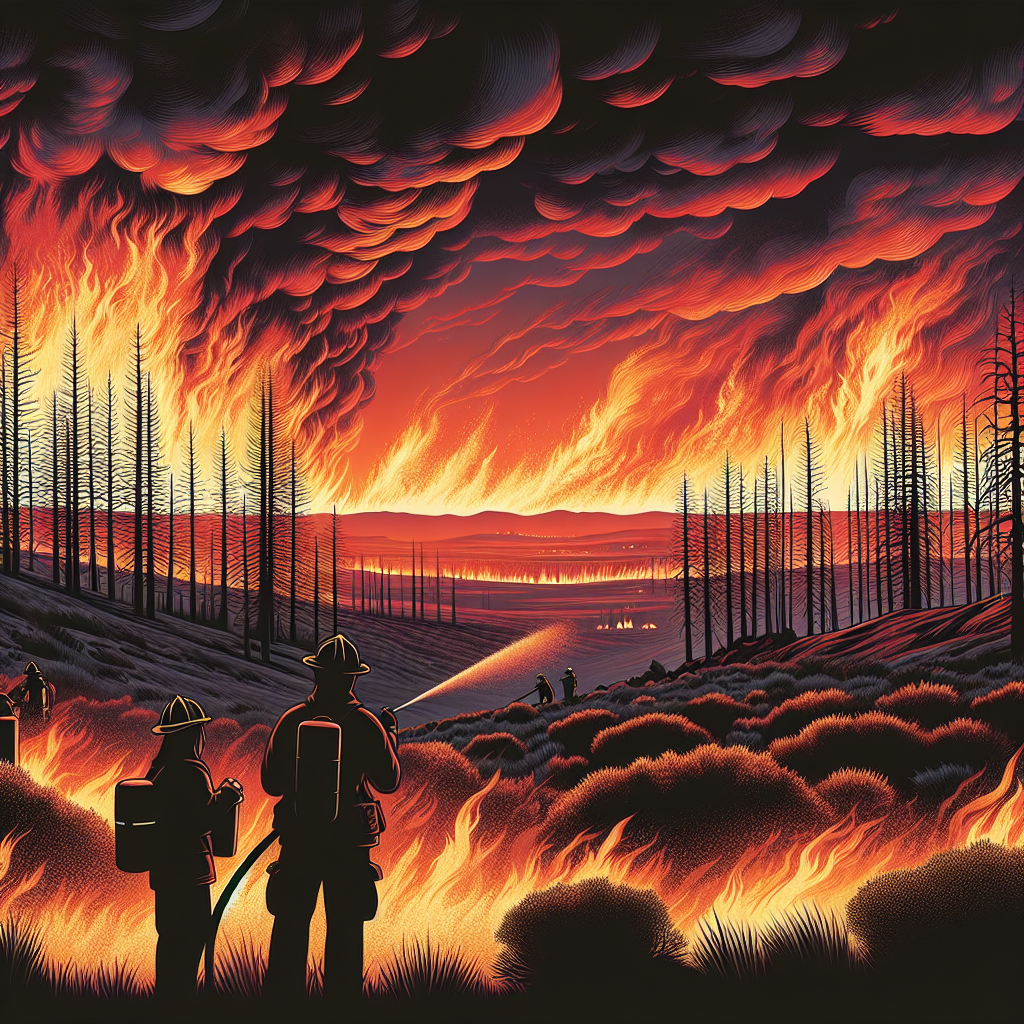Raging Wildfires Devastate Pacific Northwest and Canada
Wildfires fueled by winds and lightning have ravaged the Pacific Northwest this week, with the Durkee Fire in Oregon rapidly expanding. In California, the Park Fire forced thousands to evacuate. Smoke from these and Canadian fires has affected air quality as far east as Detroit, causing widespread destruction.

Wildfires, spurred by strong winds and lightning strikes, have wreaked havoc across the Pacific Northwest this week, including the largest fire in the United States rapidly expanding near the Oregon-Idaho border. The Durkee Fire, located near Huntington, Oregon, has scorched 600 square miles and threatens several towns.
Originating from a lightning strike on July 17, the Durkee Fire has been driven by wind gusts up to 60 mph, devastating brush, timberland, and ranches, and resulting in the death of hundreds of cattle. As of Friday, the fire was only 20% contained. Meteorologist Marc Chenard forecasted weaker winds and cooler air but no rain through the next week, potentially aiding firefighting efforts.
Meanwhile, the Park Fire in California, believed to be set by an arsonist, forced the evacuation of over 4,000 residents in Butte County. The fire expanded uncontrolled from 125,000 acres to 164,200 acres overnight. Challenging terrain has hindered firefighting efforts, with officials warning that upcoming winds and low humidity could exacerbate the situation.
Smoke from these fires, along with those in Canada, has drastically impacted air quality across various regions, including Denver, which ranked as having the worst air quality in the U.S. on Friday. Videos from Jasper National Park in Alberta showed extensive damage from wildfires, affecting tourists and residents alike.
(With inputs from agencies.)










